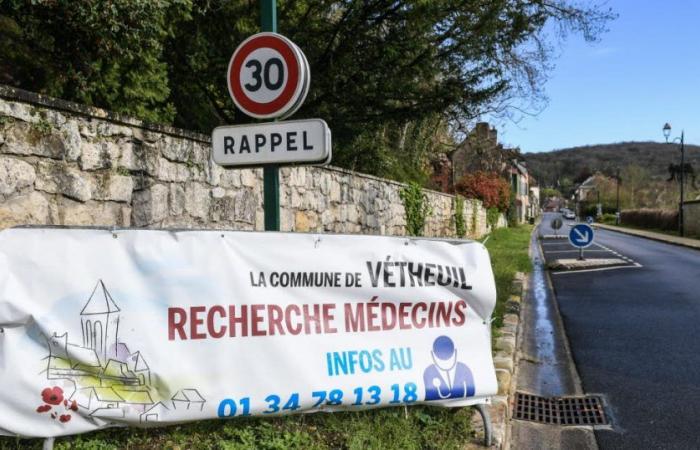
Too many doctors in France? Many areas deserted by care in dreams. “Given the number of young people we train in medicine”, at 10,500 per year today, “I think we are not immune from finding ourselves one day in a situation of plethora medical,” warned Patrice Diot, honorary dean of the Faculty of Medicine of Tours, on Thursday during a conference organized at the Academy of Medicine in Paris.
The current difficulties in accessing care are partly linked to the numerus clausus, a quota policy in the training of doctors launched in the 1970s which peaked in 1993, when France had only 3,500 students in training. 2nd year of medicine in its faculties.
Quotas loosened over time
The quota was gradually loosened at the end of the 1990s, then eliminated at the initiative of Emmanuel Macron in 2020. And in April, Gabriel Attal, then Prime Minister, asked that the faculties give another big boost to the training of students, setting a target of 16,000 riflemen trained per year.
Problem: these new students would start working around 2035 at the earliest, at the very time when retirements would decrease drastically, and medical density would begin to improve significantly.
The real question of regulating installations
But a large number of doctors will not de facto mean the end of medical deserts. The deans therefore did not hesitate to raise sensitive issues in the sector, such as the regulation of the installation of doctors.
“There is definitely a time when we will have to constrain a little, as the pharmacists have done” and “promote installations in under-dense areas”, launched Professor Thierry Moulin, the dean of the university. from Besançon.
Thierry Moulin suggests calling into question the national ranking of the boarding school competition, which each year leads many young boarders to leave their region of origin. In under-dense areas, he says, “there are students trained in living areas, from these living areas” who should be able to stay there more easily if they wish.
Benoît Veber and Patrice Diot defend the principle of a “national medical service”, a one-year contract to be offered to young doctors so that they can settle in under-dense areas.
What about the delegation of skills to non-doctors?
Another foray by the deans into a sensitive area: delegation of tasks or sharing of skills with other caregivers (nurses, physiotherapists, pharmacists and other para-medical professions) which can help relieve overloaded doctors. A red flag for certain doctors, who fear seeing these caregivers encroach on their land.
But this could free up time for doctors, note the deans. “We have to break (…) this patriarchy of the medical world on the performers,” said Thierry Moulin in front of his colleagues. “Medical time must be reserved for complex things. What is less complex, we delegate and we control,” he added later.
“An advanced practice nurse is five years of study, the equivalent of engineering training. We can learn a certain number of things in that time,” said Benoît Veber.
“What the French are asking for is to have access to care, not necessarily to a doctor. On the other hand, they want to have access to a doctor when it is justified,” he summarized.
France





